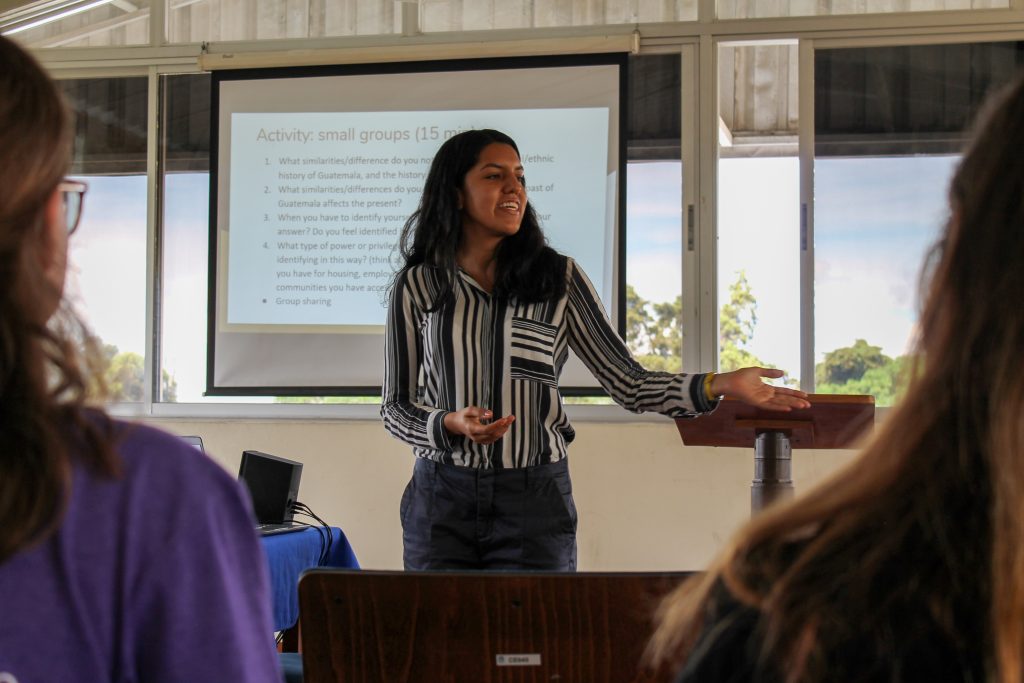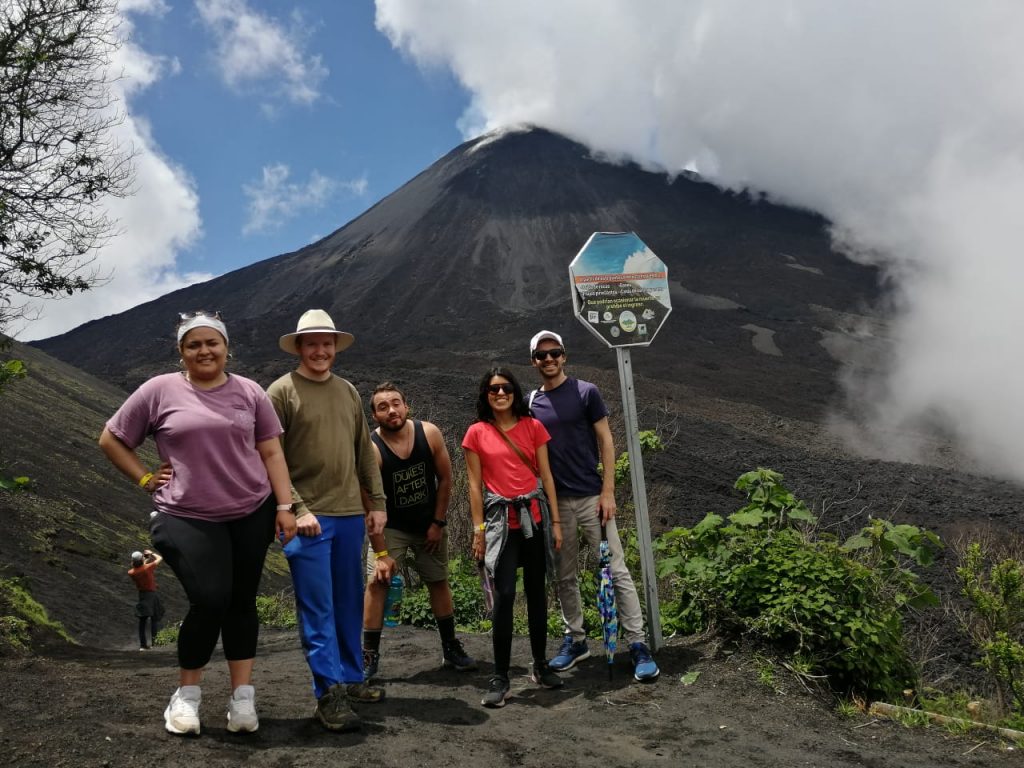Meet Andrea Moya, CASAS Program Director
Cross-Cultural Connections

Andrea Moya lectures in front of a class.
Study and Service
I grew up in Mennonite congregations in South America, so I knew the SEMILLA seminary was located in Guatemala from a young age. I learned more about the organization first-hand after I led a group of high school students who had been sponsored through Goshen College’s Study Service Theology Term program. I met some of the faculty and staff and learned about SEMILLA’s need for someone to direct the Central American Study and Service (CASAS) programs. SEMILLA’s needs and my own interests were a good match, so when a space became available to help support the CASAS programs, I accepted the opportunity to serve.
My favorite part of supporting the programming at SEMILLA is meeting a wide variety of people from every sort of background. This includes the faculty and staff of SEMILLA, the students here studying Spanish, the college and church group leaders who participate in the CASAS programs, and the organizational leaders and guest speakers who come to share their experience with our participants.
Nurturing Relationships Rooted in Faith
Being a part of SEMILLA has allowed me to nurture the relationships built by the seminary over more than 35 years with pastors, leaders, outside institutions, and program participants. Because of this, I have learned the art of cultivating and tending to new and old relationships.
SEMILLA’s original mission as a seminary means that it is a place where faith and spirituality matter. There is a special time set apart for devotionals and coming together around our faith. This type of space is unique and sacred and hard to find in other organizations or institutions.

Andrea (red shirt) with a Learning Tour group on a trip to Pacaya Volcano.
Appreciating Differences in a Study Abroad Setting
There are many opportunities for new understanding across cultures through SEMILLA’s seminary programs, especially because those participants come from a mix of backgrounds–some from collectivist cultures, some from individualistic ones. I have seen issues about time, privacy, sociability, structure, and flexibility negotiated over and over among students, faculty, staff, and host families. The realization many eventually arrive at is that we cannot assume another person sees the world as we do. We must learn to communicate, compromise, and negotiate.
I imagine SEMILLA as a giant quilt, in which different pieces of cloth are stitched together, each retaining their individual beauty while becoming part of a larger and equally beautiful whole.
